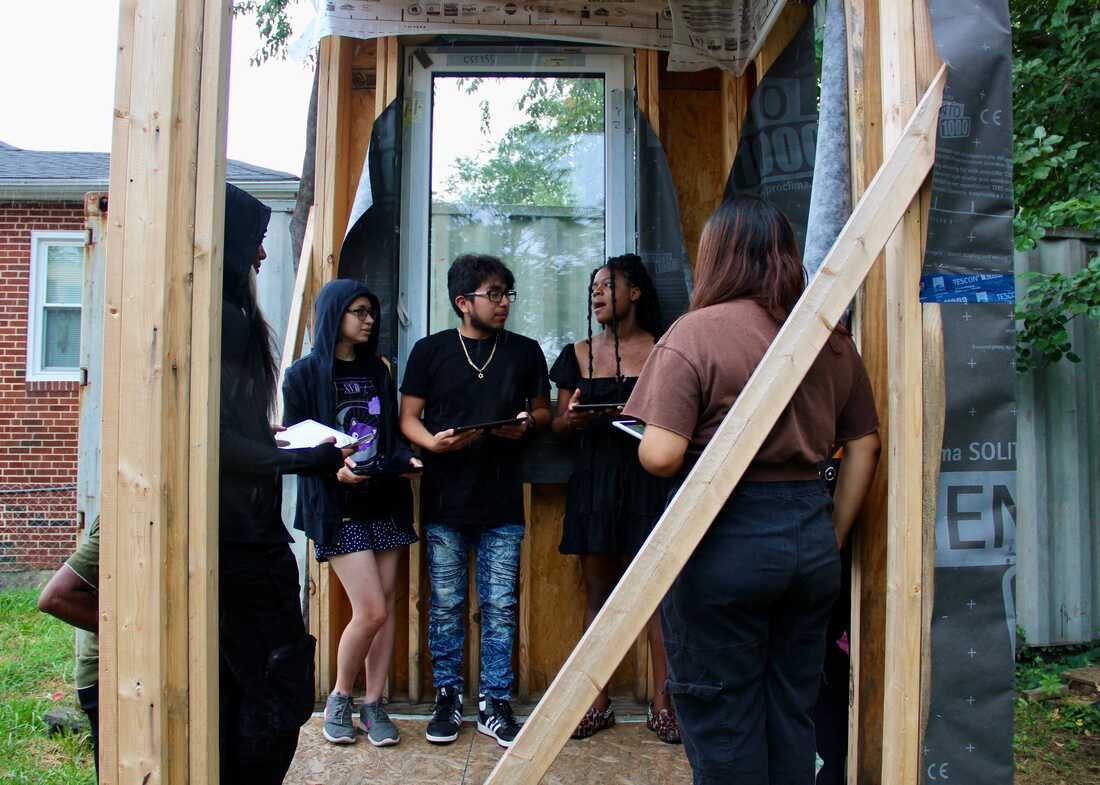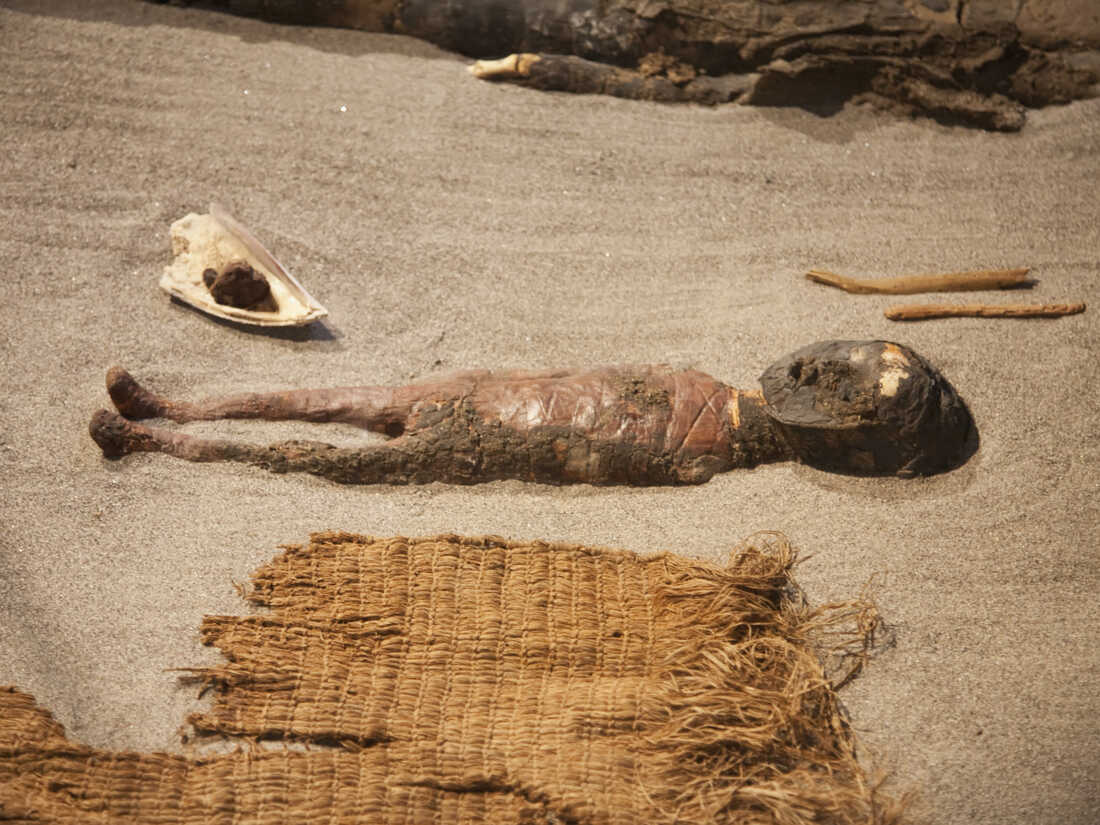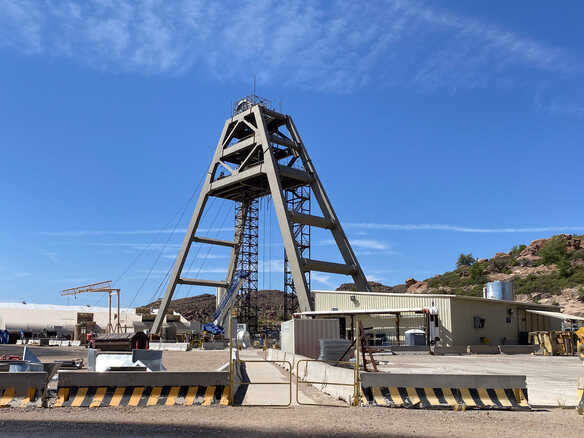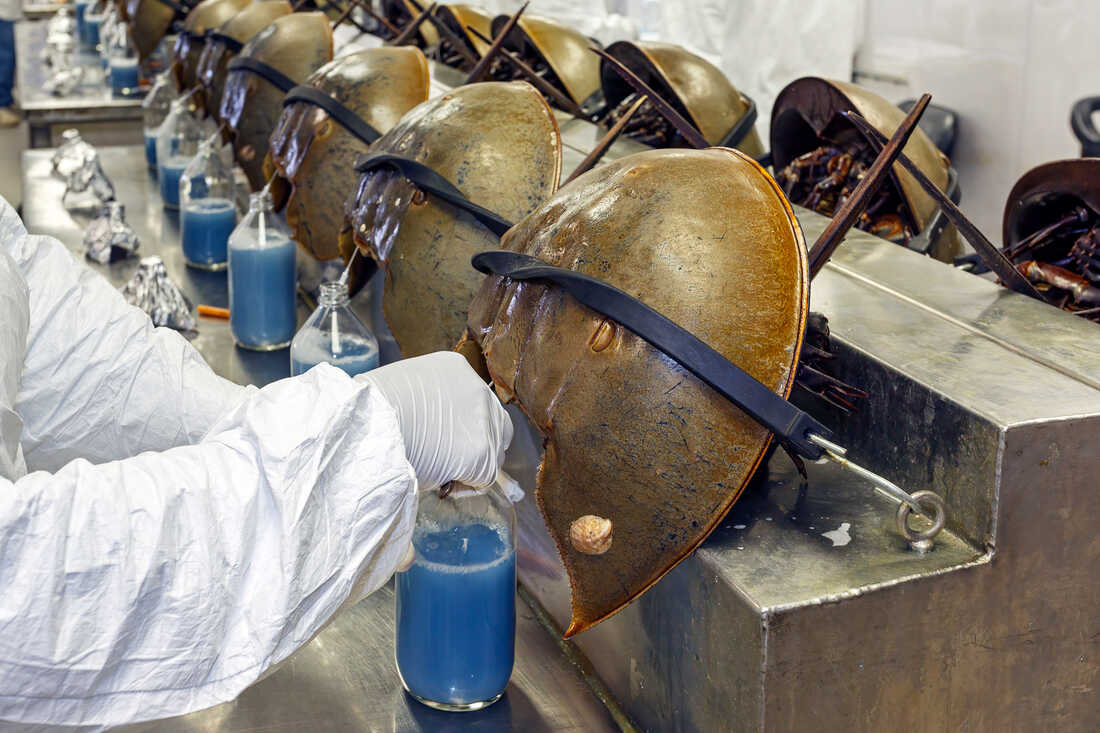Student activists are pushing back against big polluters \u2014 and winning
By B.A. Parker|Rebecca Hersher|Courtney Stein|Bilal Qureshi|Dalia Mortada|Neela Banerjee|Arielle Retting
Students give a presentation at a construction site in South Baltimore. The student activists, who formed the group Free Your Voice, are fighting against a very different kind of danger in their neighborhood: air pollution and climate change. B.A. Parker/NPR hide caption
toggle caption B.A. Parker/NPRStudents give a presentation at a construction site in South Baltimore. The student activists, who formed the group Free Your Voice, are fighting against a very different kind of danger in their neighborhood: air pollution and climate change.
B.A. Parker/NPRSouth Baltimore is on a peninsula surrounded by water, highways and train tracks. It's mostly made up of residential row houses, small yards, schools, rec centers and parks.
It's also often thought of as a place to avoid — folks are taught to be careful of or even avoid South Baltimore. in the Brooklyn neighborhood of South Baltimore, and
"People think Curtis Bay is a dangerous place. It's not. It's just we're surrounded by dangerous things," says Taysia Thompson, 17.
Taysia is a part of a group of student activists fighting against a very different kind of danger in their neighborhood: air pollution and climate change. Lots of 18-wheeler trucks with their diesel exhaust and noise pass through the neighborhood. Curtis Bay is also home to a junkyard where they crush cars, an old landfill, chemical manufacturing plants, and mountains of coal. These are not the kinds of neighbors anyone wants, and that's why — all over the country — polluters like these often end up in neighborhoods like South Baltimore, with mostly working class, poor people and people of color.
Taysia Thompson is part of a group of student activists fighting against a very different kind of danger in their neighborhood: air pollution and climate change. B.A. Parker/NPR hide caption
toggle caption B.A. Parker/NPRTaysia Thompson is part of a group of student activists fighting against a very different kind of danger in their neighborhood: air pollution and climate change.
B.A. Parker/NPR"I didn't know that I was inhaling or like, living near this like, coal pier," says Vilma Gutierrez, 16, one of the Free Your Voice members. "And I actually wanted to do something about it. So we are, finally."
There's the immediate pollution Vilma and the residents of South Baltimore are breathing in today: Coal releases a fine, black dust that's small enough to get into people's lungs. It makes respiratory diseases worse, or can even cause disease and premature death if you're breathing it in day after day. And there's the greenhouse gas emissions that will affect us all later after the coal is exported and burned. To avoid catastrophic global warming, .
The teens of Free Your Voice are taking on a behemoth opponent: the massive freight transportation company CSX, which transported more than 8 million tons of coal through South Baltimore in 2021. CSX makes billions of dollars a year, and it's just one part of an even more massive coal industry in the U.S.
An open pile of coal near the high school. B.A. Parker/NPR hide caption
toggle caption B.A. Parker/NPRAn open pile of coal near the high school.
B.A. Parker/NPRTaking on big coal
Taysia Thompson first learned about the activism in her neighborhood from her older brother, who was part of the incinerator movement. She started learning about how dangerous air pollution is, and how it's a likely contributor to the respiratory problems Taysia grew up seeing around her.
This past summer, Taysia and three other students spent their time gathering evidence to try and get the coal pollution out of their neighborhood. One way to do that is to prove what they already know: that the black dust that's caked onto cars and porches is actually dust blowing from the coal.
Air pollution monitoring instruments next to freight train tracks in Baltimore. The students in Free Your Voice spent the summer using sticky paper to gather samples of dust from all over the neighborhood to prove that the soot is from coal and to pinpoint which parts of the neighborhood are most affected. Ryan Kellman/NPR hide caption
toggle caption Ryan Kellman/NPRAir pollution monitoring instruments next to freight train tracks in Baltimore. The students in Free Your Voice spent the summer using sticky paper to gather samples of dust from all over the neighborhood to prove that the soot is from coal and to pinpoint which parts of the neighborhood are most affected.
Ryan Kellman/NPRThe Maryland Department of the Environment has asked CSX to monitor pollution along the perimeter of the coal terminal. When we asked CSX to comment, they declined to make anyone from the company available for an interview. But they did share a statement by email that said the company is monitoring particulate matter — which is another word for tiny soot — around its property, and that CSX will "continue to invest significant resources into this facility to operate it in an environmentally responsible manner for years to come."
Meanwhile, the students in Free Your Voice are going beyond what the multibillion-dollar corporation is doing to monitor air pollution. They spent the summer using sticky paper to gather samples of dust from all over the neighborhood to prove that the soot is from coal and to pinpoint which parts of the neighborhood are most affected. Scientists from Johns Hopkins University and Towson University are helping the students do this work. McIlwain's office knows about it, and have said they will use the data and stay in close contact with the students while they do the research.
They are also sending dust samples to a scientist in California, who uses an electron microscope to compare the dust that's in this neighborhood to samples from the piles of coal at the terminal in South Baltimore to see if it matches.
The goal is to eventually get the state regulators to deny the permit that CSX needs to operate, or at least require the company to enclose all the coal, or at the very least put water onto all of it so there's less dust blowing around. But no matter what, they want CSX to pay the community a lot more for the damage that the pollution is causing. McIlwain says that the state is considering all of those requests.
Raven Veillon, 18, gives a presentation on the coal at the local rec center. "It feels frustrating because we're doing all this just to prove to them that it exists," she says. B.A. Parker/NPR hide caption
toggle caption B.A. Parker/NPRRaven Veillon, 18, gives a presentation on the coal at the local rec center. "It feels frustrating because we're doing all this just to prove to them that it exists," she says.
B.A. Parker/NPRBaltimore City is in an unprecedented situation where there's Black leadership across the board. They all acknowledge that what's happening in South Baltimore is "unjust and unfair," as Baltimore Mayor Brandon Scott put it when we asked him about this.
Shashawnda has been grappling with her feelings about Black politicians who know the problem but who know the problem but haven't taken the steps needed to challenge the status quo and better protect people's health.
"You are pathetic. You are worse than the people that hasn't [sic] experienced it. Because they can say, 'I've never seen that. I don't know what that's like.' But you know what it's like, you know what it's like," she says. "So we shouldn't have to convince you. We shouldn't!"
Building a movement despite the odds
Even if these young people are still fighting the pollution, they've racked up some more incremental wins. They're making it harder for the rest of the city to ignore what's happening in their community. They're winning over their neighbors and raising awareness about the dangers of this coal dust. And they're slowly gaining political power.
Plus they're using new tactics. Free Your Voice's action team is risking getting arrested for putting up protest banners over the highway. One of their recent approaches was placing bags of coal on the front steps of City Council members' homes, demanding that they publicly support efforts to reduce air pollution.
Carlos Sanchez, 18, a member of the group of teenage climate activists, gives a presentation on the coal at the local rec center. B.A. Parker/NPR hide caption
toggle caption B.A. Parker/NPRCarlos Sanchez, 18, a member of the group of teenage climate activists, gives a presentation on the coal at the local rec center.
B.A. Parker/NPR"If it means getting my voice out, and helping other people get their voices heard, then I think I'm doing pretty OK with that," Raven says.
It shouldn't be surprising that young people like Raven are effective leaders of local climate movements. National polls show that the people who are most concerned about climate change , who live in neighborhoods that bear disproportionate pollution from burning and transporting fossil fuels, as opposed to middle-class white kids who so often end up being the face of youth environmental movements.
The students say that being a part of the program has changed them — how they advocate for their community, and how they advocate for themselves.
"I was never interested in politics," Vilma says. "It never interested me because of the young age that I am. Like what am I gonna do? But it really has, like, changed my mind."
As for their fight against CSX, the students met with the Maryland Department of the Environment in September to share their findings about the coal dust. McIlwain says the state's regulators and attorney general are exploring ways to reduce coal pollution in South Baltimore. And, eventually, CSX will probably get its new operating permit — but this time, it could include some new protections or money for the people of South Baltimore.
Until then, everyone is just breathing the air. And the students in Free Your Voice plan to keep fighting.
Loading...



